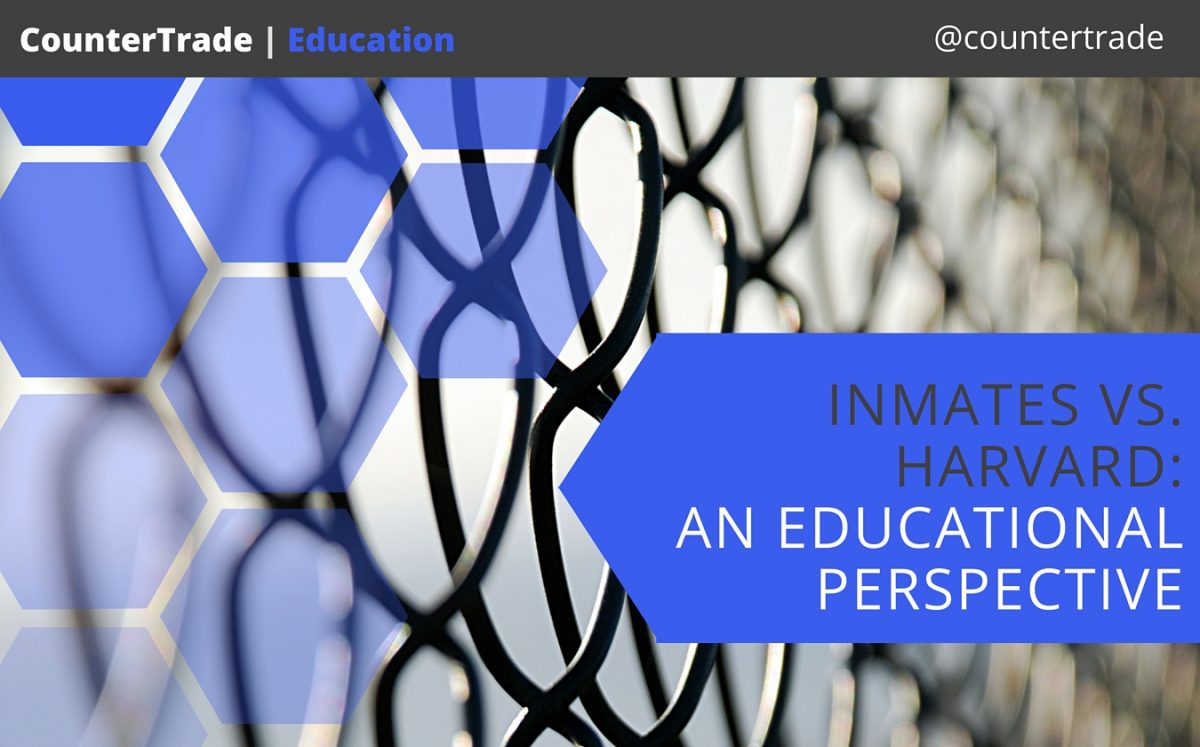The news went viral.
The improbable story of the prison debate team that outsmarted Harvard’s best and brightest made its way onto millions of Facebook and Twitter feeds since news broke in late September. The engaging narrative, complete with an underdog win, sparked a serious debate about whether inmates should be provided with such high-quality, free education. Regardless, the fact is that the inmate team won. Despite considerable hardship, the prison team managed to beat a highly respected institution by applying academic rigor and critical thinking skills. If these methods worked for students with numerous barriers to achievement, chances are they could work for your students, too.

Academic Rigor
The inmates who participated in the debate program are students in the Bard Prison Initiative, which provides incarcerated criminals a wide range of college courses and the chance to earn an undergraduate degree from Bard College. According to the BPI’s FAQs, only 1 in 10 are admitted and many inmates try multiple times to get in. Select students participate in debate programs through the Bard Debate Union.
The Harvard debate team had access to libraries, countless books and, most importantly, the internet. The prison debate team, on the contrary, had to prepare in a maximum security prison, one of the harshest learning environments imaginable. Without access to the internet, something most people would see as a huge competitive disadvantage, the inmates had to request and wait long periods of time for physical study materials such as approved books and magazines.
According to David Register, Faculty Fellow and Director of Debate for the Bard Debate Union, prisoners attended weekly, two-hour debate meetings and practiced nearly constantly on their own, in addition to handling full-time course loads. In this Guardian article, Register describes the amount of effort inmates make:
“When they aren’t in class, BPI debaters request time in the school to meet. When they can’t get into the school, they talk debate in their cells, the yard and the mess hall. They verbally spar with BPI students who are not on the debate team, and talk with their families – creating for themselves a group of informal coaches.”
In addition, BPI courses can be more challenging than the ones taken by Bard’s non-inmate students. According to a CBS report, professors had to accelerate the courses because the inmates studied so much and worked so hard.
Takeaway: Even before the debate started, the inmates set themselves up for success by working incredibly hard despite:
- Lack of resources, including internet
- Harsh environments
- Heavy course loads on an advanced academic level
Critical Thinking
From preparation to the debate itself, the inmate team showed their excellent critical thinking skills.
First, the Bard debate team started out at a disadvantage as they had to overcome harsh studying conditions and heavy workloads and construct an argument with no access to the internet. Next, they challenged and refined their thinking through self-motivated study habits that extended far beyond the weekly required meetings. Finally, the argument they constructed was fundamentally superior because it caught the Harvard team off-guard. Critical thinking allowed them to prepare and improve despite disadvantages and to construct and refine a better, winning argument.
A Wall Street Journal article notes that the Harvard team was surprised and impressed by the prisoner’s unforeseen argument, which defended a point that the inmates morally disagreed with. In the article, Harvard Junior Anais Carell states: “They caught us off guard.”
Takeaway: An education focusing on critical thinking affected their entire approach, from the way they prepared for the debate to the winning argument they constructed. Instead of being limited by the lack of resources, they used it to their advantage to focus more clearly on the creativity of their argument.
Liberal Arts Education
Bard is clear about the BPI program’s purpose in their FAQ: “BPI’s primary focus is not vocational. Rather, it is a college liberal arts program designed to educate participants broadly, so they can think flexibly and critically — skills that support a fulfilling life, as well as professional success.”
While Bard does offer some career services for inmates, the true mission of the program is to use liberal arts education to turn inmates into productive members of society. That mission seems to be working. The rate of program participants that returned to prison within three years after earning degrees is less than 2%. Contrast that with a 2005 National Institute of Justice study that found more than two-thirds of prisoners are re-arrested within three years of release.
Takeaway: The Bard Prison Institute focuses on building critical thinking through a rigorous liberal arts education. The power of this approach can be seen not only in the prison debate team beating teams from Harvard, West Point and #2 ranked University of Vermont, but also in a recidivism rate that is 96% below the 2005 national average (last published study of the NJI).
Putting It All Together
The story of inmates vs. Harvard ultimately raises an intriguing question: What does it say about the future of education technology that imprisoned criminals, who could not even use the internet, were able to beat a debate team from such a renowned academic institution?
A 2012 national survey from the Pew Internet & American Life Project, found that teachers are concerned about the ease of finding information on the internet leading to “potentially diminished critical thinking capacity”. If used as a crutch, the internet can reduce critical thinking abilities and result in students that are unprepared for unorthodox viewpoints and situations requiring novel thought. If an emphasis on critical thinking and hard work are paired with the right technology, there is no limit to how far students could go.
Sources
https://www.cbsnews.com/news/maximum-security-education/
https://www.nij.gov/topics/corrections/recidivism/pages/welcome.aspx
https://www.wsj.com/articles/an-unlikely-debate-prison-vs-harvard-1442616928

